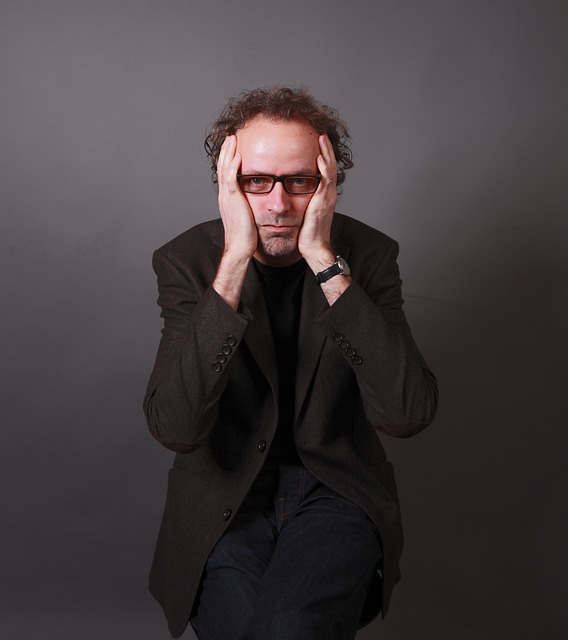The meditation described here is one of many podcasts provided by the Mindful Awareness Research Center (MARC), UCLA. The presenter is Diana Winston, Director of Mindfulness Education at MARC and author of The Little Book of Being: Practices and Guidance for Uncovering Your Natural Awareness. In the book, Diana explains the nature of natural awareness and how to develop it.
Diana is the main presenter of the MARC meditation podcasts that cover a wide range of topics designed to build self-awareness, increase self-regulation, and enhance overall well-being. Diana describes the weekly meditation sessions as an oasis in the midst of our turbulent and challenging times. In the meditation podcast described in this blog post Diana focuses on the topic, Are You Anxious? The meditation is particularly powerful for people dealing with situational anxiety, e.g., awaiting a medical diagnosis or preparing for a job interview.
The meditation may not work for some people who are experiencing a continuous state of non-specific anxiety. The work of Johann Hari, author of Lost Connections, may be useful here. Also , people who have experienced childhood trauma may find the trauma-sensitive mindfulness approaches more in keeping with their present experience.
The mind-body connection in anxiety
When we experience the emotion of anxiety, we become conscious of the close mind-body connection involved. Anxiety can be felt in the body in many ways, e.g., “butterflies in the stomach”, aches and pains in arms and/or legs, tightness in the chest or constriction or soreness of the throat. Simultaneously, we will be experiencing negative thoughts such as imagining the worst possible scenario, questioning our ability to cope, recalling previous “failures” or envisaging a poor outcome. The combination of thoughts and uncomfortable bodily sensations creates a vicious cycle with one reinforcing the other.
What compounds the difficulty of dealing with anxiety is that it has a bad name – it is considered a bad emotion. Karla McLaren, author of Embracing Anxiety, suggests that anxiety is a necessary emotion within which lies the wisdom to identify and support constructive action to deal with our challenges, tasks, and expectations. She offers ways to access the “genius of anxiety” to channel the inherent energy towards constructive action (instead of repression or suppression of the feeling).
A guided meditation for situational anxiety
Diana’s podcast begins with a grounding exercise covering breath, bodily sensations, and sounds. Grounding is particularly relevant to dealing with anxiety because, as Johann points out, this emotion often arises from a sense of disconnection. In the meditation, Diana strongly encourages us to feel the support of the chair, the earth, and our immediate environment – an approach designed to alleviate feeling unsupported in facing the challenges of life and to reinforce a sense of connectedness.
The next phase of the meditation focuses on our uncomfortable bodily sensations – getting in touch with, and reconnecting to, our bodies. It involves noticing how our body is responding to the emotion of anxiety and progressively releasing any tension, tightness, or constriction through a proactive body scan.
Moving beyond bodily sensations, Diana encourages us to address our negative thoughts by drawing on our inner wisdom to ask a series of challenging questions – what Karla calls “conscious questioning”. This approach taps into previous achievements, challenges unfounded assumptions and catastrophe thinking and seeks to identify one or more constructive steps that can be taken to reduce anxiety and progress the task, project, or other challenging endeavour.
Diana rounds off her guided meditation on situational anxiety by encouraging us to engage in a loving kindness meditation – extending kindness to ourselves and others, particularly to those who are also experiencing anxiety.
Reflection
I recently used this guided meditation to help me deal with a challenging situation. I found the body scan enlightening in the sense of unearthing and dealing with the uncomfortable bodily sensations associated with my anxiety. The “conscious questioning” was also very constructive. As we grow in mindfulness through guided meditations, whether face-to-face or via a podcast, we can increase our self-awareness (especially in relation to how our body and mind work in unison), develop our self-regulation by reducing reactivity and increase our sense of well-being and the associated ease.
___________________________________________
Image by Lars Eriksson from Pixabay
By Ron Passfield – Copyright (Creative Commons license, Attribution–Non Commercial–No Derivatives)
Disclosure: If you purchase a product through this site, I may earn a commission which will help to pay for the site, the associated Meetup group and the resources to support the blog.
